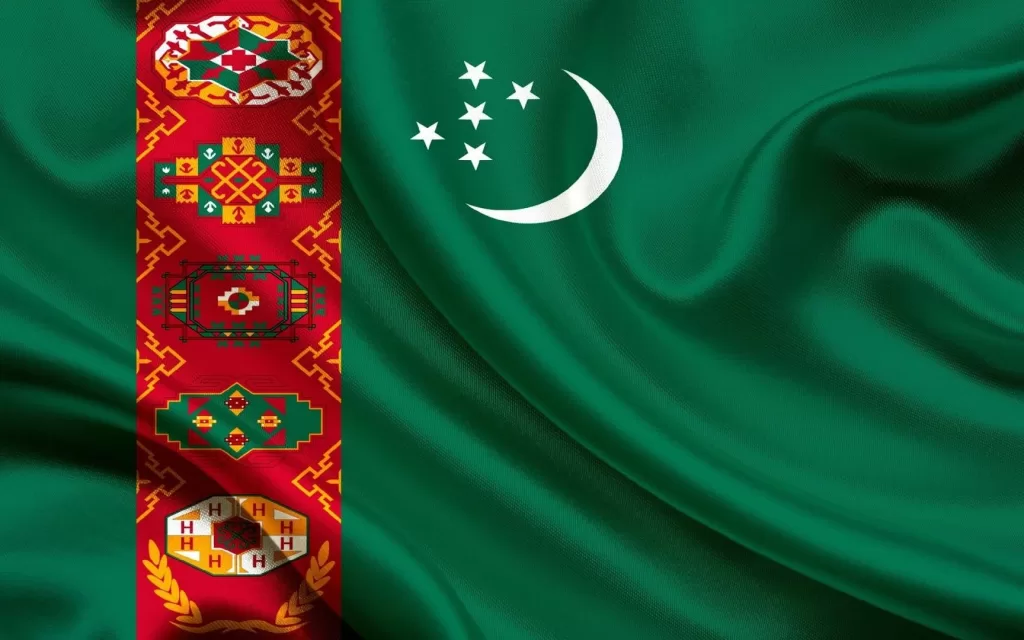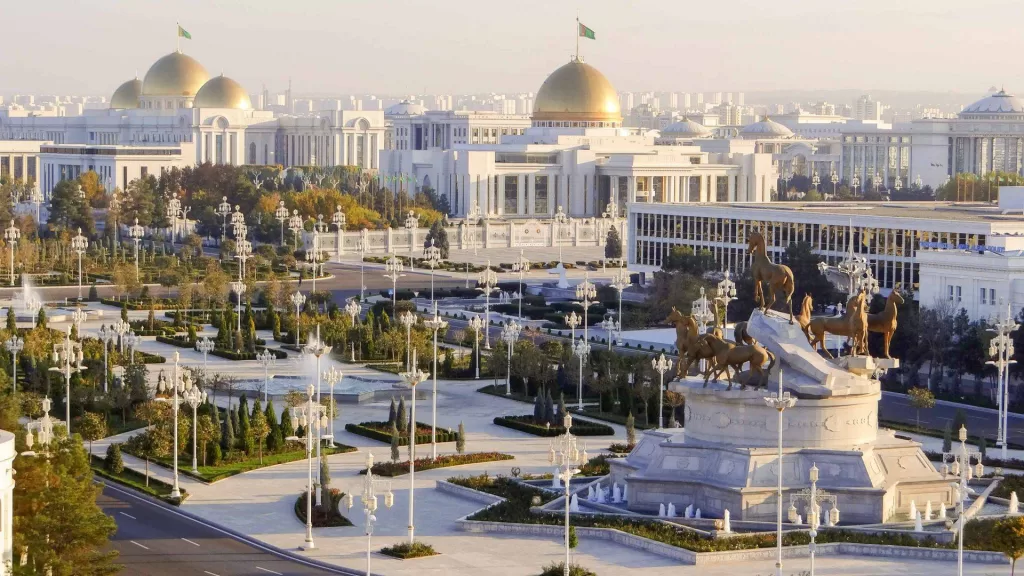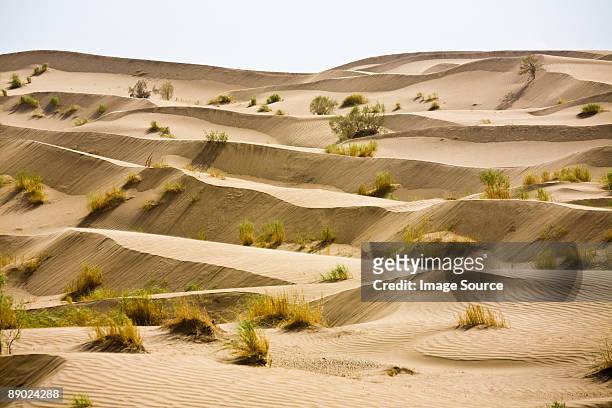Turkmenistan Country Report

Turkmenistan, located in Central Asia, is known for its vast desert landscapes, rich cultural heritage, and authoritarian government. With a population of around 6 million people, Turkmenistan gained independence from the Soviet Union in 1991 and has since been ruled by President Gurbanguly Berdimuhamedow. The country’s political system is characterized by a strong presidency and limited political pluralism, with the ruling party dominating the political landscape.
Turkmenistan’s economy relies heavily on natural gas exports, which account for the majority of government revenue. However, the country faces challenges such as economic diversification, corruption, and limited access to basic services for its population.
The government has implemented ambitious infrastructure projects, including grandiose architectural developments and transportation networks, aimed at showcasing the country’s progress and modernization. However, concerns persist about human rights abuses, censorship, and restrictions on freedom of expression.
Turkmenistan’s closed political system and lack of transparency make it challenging to assess the full extent of its internal dynamics. However, the country’s strategic location and energy resources give it significant geopolitical importance in the region. Overall, Turkmenistan’s political landscape is characterized by a centralized government and limited political freedoms, as the country seeks to balance modernization efforts with maintaining control and stability.
Last updated: December 13, 2022
Security
Security in Turkmenistan is tightly controlled by the government, which prioritizes stability and maintains a strong presence of security forces to ensure internal order. The country’s authoritarian regime tightly controls information and restricts political dissent, leading to a low level of political violence and crime. Turkmenistan also benefits from its relative isolation and neutrality in regional conflicts, which contributes to its overall security.
The government closely monitors and suppresses any perceived threats to its authority, including potential opposition groups or dissenting voices. Additionally, Turkmenistan has implemented strict border controls to prevent illegal migration, smuggling, and potential security threats from neighboring countries.
While Turkmenistan faces minimal external security threats, its dependence on energy exports, particularly natural gas, makes it vulnerable to fluctuations in global energy markets. However, the government’s tight control over the economy and resources helps mitigate some of these risks.
Overall, security in Turkmenistan is characterized by a strong authoritarian government that prioritizes stability and control, which has resulted in relatively low levels of internal and external security challenges.
Last updated: May 16, 2022
Infrastructure

Turkmenistan has invested significantly in infrastructure development, particularly in recent years, to support economic growth and modernization. The country boasts extensive transportation networks, including roads, railways, and airports, connecting its major cities and regions. Turkmenistan has also invested in ambitious architectural projects, such as grandiose government buildings and monuments, which serve as symbols of the country’s progress and national identity.
In the energy sector, Turkmenistan is known for its vast reserves of natural gas, and the government has invested in the construction of pipelines and infrastructure to export gas to international markets. The country is a key player in regional energy cooperation, with projects such as the Turkmenistan-Afghanistan-Pakistan-India (TAPI) gas pipeline aiming to diversify export routes.
Additionally, Turkmenistan has invested in telecommunications infrastructure to expand access to mobile and internet services, although access remains limited in rural areas.
Despite these investments, Turkmenistan’s infrastructure faces challenges such as inadequate maintenance, funding constraints, and inefficiencies due to government control and bureaucracy. However, ongoing development projects and partnerships with international organizations aim to address these challenges and support Turkmenistan’s economic growth and development aspirations.
Last updated: February 15, 2023
Environment

Turkmenistan’s environment faces various challenges, including desertification, water scarcity, and pollution. The country’s arid climate and extensive agriculture contribute to soil degradation and desertification, particularly in rural areas. Water resources are limited, with much of the country relying on the Amu Darya and Karakum Canal for irrigation, leading to issues such as salinization and depletion of groundwater.
Industrial activities, including energy production and manufacturing, contribute to air and water pollution, impacting public health and ecosystems. Additionally, Turkmenistan’s reliance on fossil fuels for energy production contributes to greenhouse gas emissions and climate change.
The government has implemented initiatives to address environmental issues, including afforestation projects, water management schemes, and efforts to promote sustainable agriculture practices. However, challenges remain, including limited resources, lack of public awareness, and bureaucratic inefficiencies.
International cooperation and partnerships are essential to address transboundary environmental issues and promote sustainable development in Turkmenistan and the wider region. Overall, Turkmenistan faces significant environmental challenges that require concerted efforts to mitigate and adapt to the impacts of climate change and environmental degradation.
Last updated: May 16, 2022
Health and Medical
Turkmenistan’s healthcare system is primarily state-run and provides basic medical services to its citizens. The government places emphasis on providing healthcare services free of charge to its population, including medical consultations, hospital stays, and medications. However, the quality of healthcare facilities and services varies across the country, with rural areas often facing shortages of medical supplies and qualified healthcare professionals.
Access to specialized medical care may be limited, and citizens often seek treatment abroad for complex medical conditions. The government has invested in improving healthcare infrastructure, including the construction of modern hospitals and medical centers in urban areas.
Public health initiatives in Turkmenistan focus on disease prevention and health promotion, including vaccination campaigns, maternal and child health programs, and efforts to combat infectious diseases such as tuberculosis and HIV/AIDS.
Despite these efforts, Turkmenistan’s healthcare system faces challenges such as underfunding, lack of transparency, and limited access to modern medical technologies and treatments. Additionally, there are concerns about the quality of healthcare services and the availability of essential medications.
Overall, while Turkmenistan provides basic healthcare services to its population, there is room for improvement in terms of accessibility, quality, and efficiency within the healthcare system.
Last updated: September 6, 2023
Political
Turkmenistan is characterized by a highly centralized political system dominated by the President, Gurbanguly Berdimuhamedow, who exercises extensive control over all aspects of governance. The country’s political landscape is marked by limited political pluralism, restrictions on freedom of expression and assembly, and a lack of independent media. The ruling Democratic Party of Turkmenistan, effectively controlled by the President, holds a monopoly on political power, with opposition parties being virtually non-existent. Despite periodic efforts at reform and modernization, Turkmenistan remains one of the most authoritarian countries in the world, with the government tightly controlling political discourse and dissent, and opposition to the ruling regime is not tolerated.
Last updated: February 15, 2023















